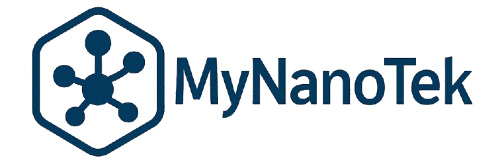Nanotechnology in advanced sensor technologies: Precision redefined
Revolutionizing Precision: A Nanotechnology Journey
Have you ever wondered how the tiniest elements can transform entire industries, making them more precise and efficient? In today’s rapidly advancing technological landscape, nanotechnology stands as a testament to human ingenuity, particularly in sensor technologies.
The Problem: Traditional Sensor Limitations
As industries strive for greater accuracy and efficiency, traditional sensor technologies often fall short. These sensors, though effective to a degree, are limited by their size, sensitivity, and ability to operate in extreme conditions. This presents a significant challenge in sectors such as healthcare, environmental monitoring, and manufacturing, where precision is paramount.
Agitation: The Need for Precision
Imagine a world where a minor deviation in sensor readings could lead to catastrophic outcomes. In healthcare, for instance, the slightest inaccuracy in sensors measuring vital signs can mean the difference between life and death. Similarly, in environmental monitoring, inaccurate data can result in a failure to detect critical changes in air or water quality, endangering ecosystems and human health. Such scenarios underline the necessity for innovation in sensor technologies.
Solution: Nanotechnology to the Rescue
Enter nanotechnology, the game-changing innovation poised to redefine precision in sensor technologies. By manipulating matter at the nanoscale, scientists are creating sensors that are not only incredibly accurate but also smaller and more versatile than their traditional counterparts.
“There’s plenty of room at the bottom.” – Richard Feynman
How Nanotechnology is Transforming Sensor Technologies
The Key Innovations in Nanotech Sensors
Nanotechnology sensors leverage the unique properties of materials at the nanoscale, offering a range of enhancements:
- Increased Sensitivity: Nano sensors detect minute changes in the environment, providing unprecedented accuracy in data collection.
- Miniaturization: These sensors are significantly smaller, allowing for integration into compact devices and complex systems.
- Enhanced Durability: Nanomaterials are often more robust, enabling sensors to function effectively in harsh conditions.
- Cost Efficiency: Despite their advanced capabilities, nanotech sensors often reduce costs through less material usage and improved performance.
Encadré: What is Nanotechnology?
Nanotechnology involves the manipulation of matter on an atomic, molecular, and supramolecular scale. It is the engineering of functional systems at the molecular level.
Industry Applications: A New Horizon
The applications of nanotechnology in sensor technology are vast and varied, impacting several key industries:
Healthcare
Nano sensors play a crucial role in medical diagnostics, enabling early detection of diseases through analysis of biological markers at a molecular level. This leads to better patient outcomes and a more personalized approach to medicine.
Environmental Monitoring
In the fight against environmental pollution, nano sensors provide real-time data on air and water quality. Their sensitivity ensures even the smallest changes are detected promptly, aiding in swift action to mitigate environmental threats.
Manufacturing and Industry
Manufacturers utilize nanotech sensors for quality control and process optimization. The ability to monitor production at every stage ensures high standards and reduces waste, ultimately leading to cost savings and environmental benefits.
The Future of Nanotechnology in Sensors
The trajectory of nanotechnology in sensor development is promising. As research continues, we anticipate further breakthroughs that will push the boundaries of what is possible.
- Integration with AI for smarter, self-correcting systems.
- Development of biodegradable sensors to reduce electronic waste.
- Advancements in wireless and energy-harvesting capabilities.
These future innovations will only enhance the role of nanotechnology in creating smarter, more efficient, and sustainable sensor solutions.
Conclusion: Embracing the Nanotech Revolution
The impact of nanotechnology on sensor technologies is undeniable. It not only addresses the current limitations of traditional sensors but also opens up new possibilities for precision and efficiency across industries. As we look to the future, embracing these advancements will be crucial for continued innovation and improvement in sensor technology.
Now it’s your turn. Consider how nanotechnology could transform your industry, and explore the potential of integrating these advanced sensors into your systems. The future is nano, and it’s calling.
